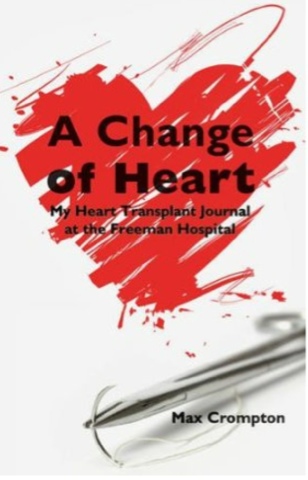The reason I was referred to the palliative care team was to help manage my pain. As I've mentioned before, I've been having quite a lot of chest pain for the last couple of months. As for the cause, no one seems sure. There's quite a few possibilities but there aren't many ways they can prove any of their theories. So I probably won't ever know what's causing it. Perhaps how it reacts to certain painkillers might rule a few things out but as to a definite answer - I don't think I'm ever going to get one.
I think the trip to palliative care today was really useful. The woman I saw seemed to be really well educated about my condition. Which is really unusual, considering how rare my conditions are. She sounded like she had read my notes pretty well. She had a lot of ideas about the pain. She said it could be an inflammation on my sternum, which I had broken twice so that my surgeons could access my heart for my open heart surgeries. She said things like that take a long time to heal because there's no way of putting a brace or strapping up my chest to allow the bones to heal after they've been broken so things like inflammation and healing problems are common apparently. So that could be a reason. She thought it might be iloprost playing a part as well because she said the infusion tends to be painful so it could be that. I did have the same kind of pain in January before I started it, but I guess this could be a different pain that just feels really similar. So in the last few days I've gone from my actual specialist doctor having no clue at all, to a specialist nurse and a random doctor I've never met before coming up with loads of reasonable ideas and, more importantly, solutions to the actual pain, which is stopping me going out and doing what I want to do.
The plan is to have a look at some recent x-rays to look for inflammation in my broken sternum, and to check out my kidney function from a recent blood test just to check they're doing okay before I start putting more chemicals into my body and to try and find out what the best kind of painkiller will be for me. The only choice really is different forms of morphine that are slow release so I can have some background pain relief and something doesn't make me feel too calm or strange so I can still drive and keep up with everything that's being said in my lectures. Oramorph, which is what I'm on now, acts fast but stops working quite quickly so for a constant it's not brilliant. When I'm on the other morphine I can still take this as a top up when it's really bad. I don't feel I suffer much with the side effects of morphine but they do make me feel a little spaced out when I take a lot, which is fine if I've got nothing to do but if I need to drive or concentrate on work, it's not ideal.
She put my mind at rest quite a lot about taking morphine all the time, the slow release form and my oramorph. She said it was virtually impossible to become addicted to it when taking it for pain relief. It's when you take it when you're not in any pain that it effects different receptors in the brain and causes addiction. And she said that for me personally it's probably the safest thing I can take, aside from paracetamol, which doesn't help the pain at all. Mainly because of all the medication I'm on is effected by taking things like ibuprofen but is perfectly safe with morphine. Even though we think of ibuprofen as being a quite safe over-the-counter drug, for me it's much more dangerous than taking morphine, which she said isn't really dangerous but has to monitored well because of the implications of taking it when you're not in pain.
I think people get quite freaked out by the thought of morphine because of the stigma of death and addiction attached to it. I mean, it's a class A drug after all. But I don't think it's really this amazing, dangerous pain relief that some people think it is. It's sounds like quite an extreme form of pain relief, and the fact that's it's not actually relieving my pain might sound pretty strange to you but it isn't an all round great pain reliever. There are a lot of different forms, it's not all the same as what they give people when they're dying. And they probably give those people a higher dose than you could function on outside hospital. So morphine is a the most sensible drug for me to take and like palliative care, it's got a bit of a bad reputation.
I'm really glad that I said I was a bit nervous about takinb morphine because of what people think about it, but she really put my mind at rest on that one. We also talked about anti-sickness drugs because whenever I'm ill I get insanely sick. I've never found an anti-sickness that works for me, my body just doesn't like them at all, even the ones they use on cancer patients going through chemo, but it's nice to know that if/when sickness becomes more of a problem we can have a look at trying some more out and seeing if there is just one that my body can handle.
I'm really happy with today. Even though I didn't actually get any more pain relief, but after my trip to Swansea next week it should all be sorted and at least I won't be at uni all the time so I can pick up new drugs and visit the palliative care team whenever I need to without having to arrange a trip home.
So this turned out to be a long post. Hopefully knowing more about palliative care and morphine might come in useful at some point in your life.
Thanks for reading and happy Wimbledon season! (yes, I'm a tennis fan)




















